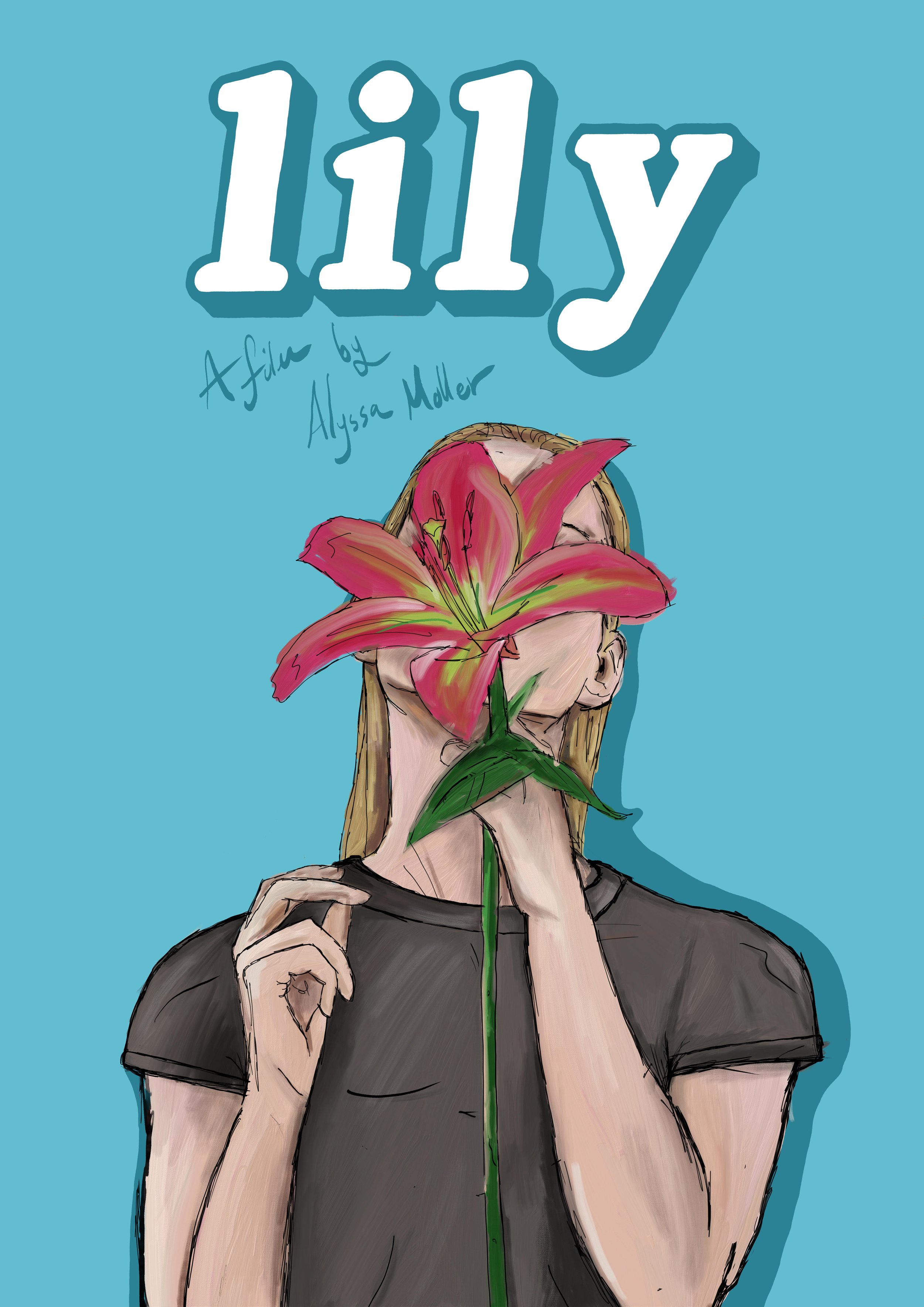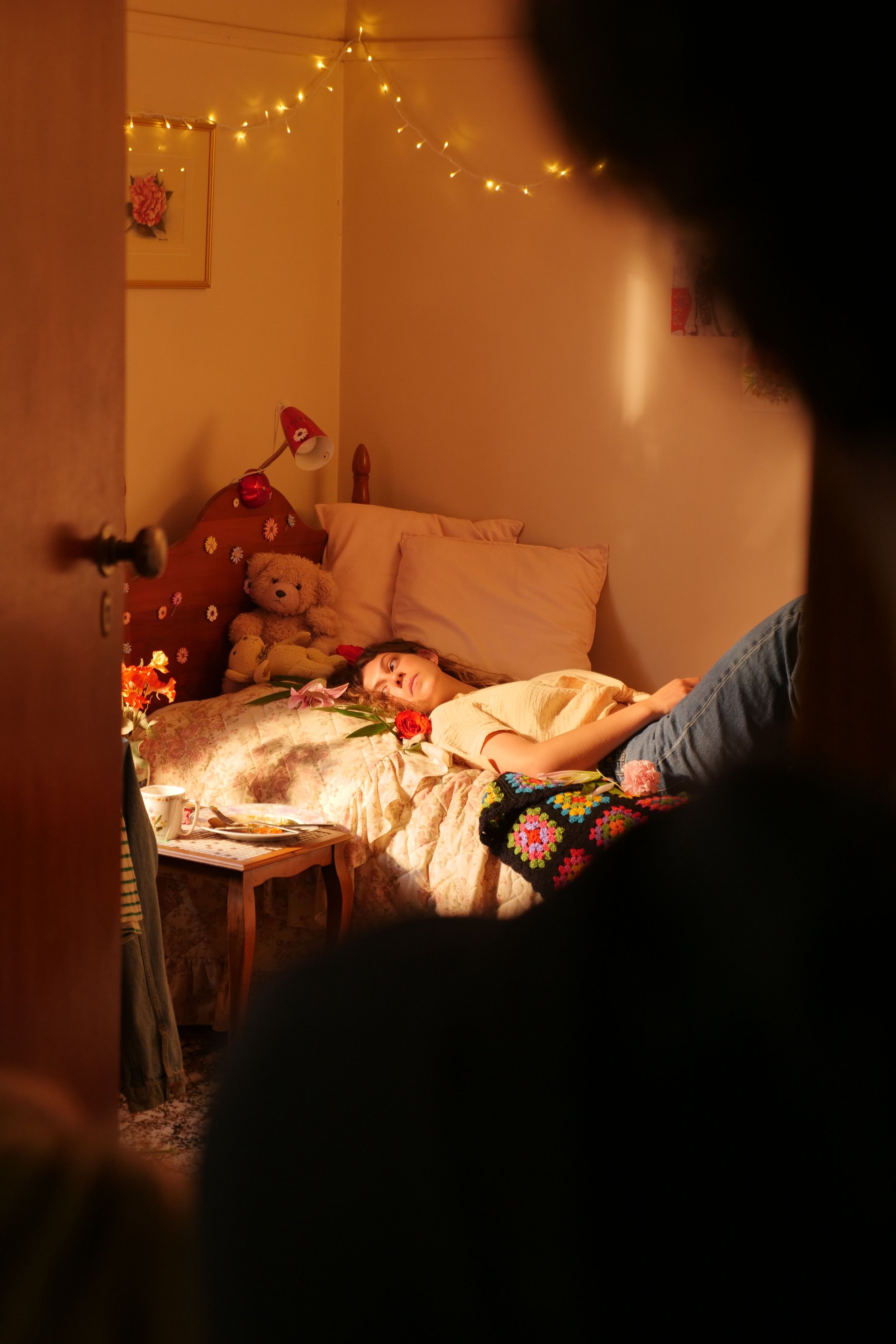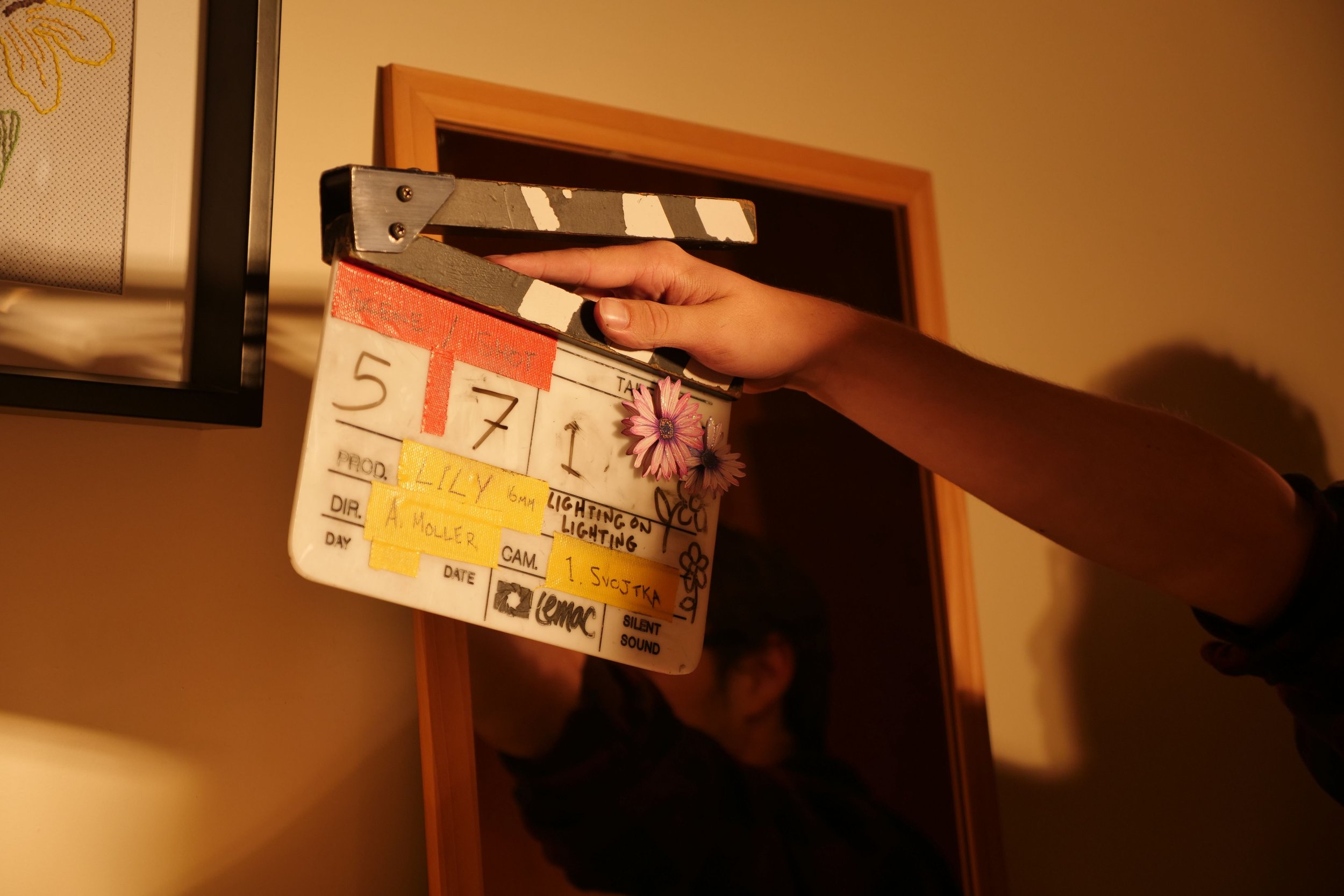
Hey Lyssie! Please introduce yourself and the wider team!
Hiya! My name is Alyssa, a writer/director based in Naarm who lives and works on Bunurong country. I’m in my final year of my film and TV Bachelor at Swinburne and loving every second. Film and storytelling is a huge passion of mine and I’m particularly interested in telling the stories that I wish I had growing up, as well as finding new and interesting ways to tackle ideas of Australian life, particularly for women and femmes. In the wider team, we’ve got Dani MacPherson who is our wonderful producer and animator, Bella Svojtka, the legend behind the cinematography, Tamara Brane-Gregory, our incredible production designer, Angus Malone, the gun on the sound design and Phil Pitsillou, the amazing editor; a group of incredibly talented and passionate minds who have been so great to help build this project with me.
What is Lily about, and what inspired the plotline?
Lily is about a mother daughter relationship, and the anxiety Lily (daughter) projects that her mum, Rose, doesn’t love her. This is a super personal story to me. Mother/daughter relationships are one of the most complex ones out there, and when my mum passed away, I realised I spent so much time worrying my mum didn’t love me, instead enjoying the love that she did give me. My mum loved me so much and my own teenage angst clouded a lot of that, so I always took it way too personally when we butted heads. It’s perfectly natural for teenage girls to feel this way, so I wanted to make a film to show that it’s normal to feel like the world is ending after silly little fights; being 16 is dramatic, but not everyone is always out to get you, sometimes love just gets expressed different to how we understand.
What's it like shooting with 16mm film?
Shooting 16mm is magical and deeply haunting! There’s always this sense of ‘holy shit, what if none of what we just shot worked, what if we accidentally exposed it all to light and its all fucked and we have no film?’, but then you get the scans back and you can see how rich and beautiful the colours are and it just makes it all worth it. It creates a totally different atmosphere on set to digital though for sure, especially if you’ve only got the budget for a certain number of reels; then you can only get so many takes. I honestly quite like it, it also forces you to be super organised which I think can only be a good thing, and it helps in the edit, giving you exactly what you need to stitch the story together. Plus the look is something digital just can’t match; that’s why we’ve shot my new short film Apart, We Grow on 16mm as well.
Which characters resonate most with you?
Definitely Lily, she comes from a lot of my teen angst. I was a very in my head teenager and Lily has so much going on in her head and lacks the tools to articulate even a portion of it, which was something I fought with my mum about a lot growing up. She’s got a lot of attitude and snark that she got from her mum too which is something I also inherited from my mum. Now though, I probably relate more to Rose and how over Lily’s teenage hormone fueled outbursts she is.
What's your favourite part of the process? Writing, filming, editing?
It’s hard to narrow it down! I think I’d have to say pre-production, because a) writing and b) planning both get me together every time. I love the organising process and getting to hear everyone's ideas as the project develops. There’s something so magical when you can get a team together that all understand the brief and then start bringing all their unique perspectives and ideas to it. I also love the writing process, figuring out what happens, when it happens and why it happens is such a fun part of the process for me, plus I love the research that goes into it and the development of characters and building their world. But then, you come to the shoot, and everything you imagined gets set up before you, and people are acting as the characters you invented and production design constructs the world you saw them in, and that is also, a very, very magical experience.
Could you explain the myth of Hanahaki Disease and why you chose this motif?
Hanahaki Disease is a fictional disease, whereby if you experience unrequited love, flowers grow in your lungs until you suffocate and die. Initially, I was playing with this idea for a romance, but the story just wasn’t working for me. Instead I thought about the way my anxiety can project false truths to me, and make me believe certain things, like thinking my love for my mum was unrequited, when it was far from it. I chose this motif because anxiety can be really hard to understand, especially visually, and when I think about how I feel when I get anxious, I honestly do feel like there’s vines in my lungs, wrapping around my trachea and constricting my breathing, until the flowers bloom and the meltdown comes. I figured a metaphor, like this disease, would be an easier way of explaining that to audiences, especially younger ones.
What films have been the most inspiring or influential to you and why?
For Lily, Greta Gerwig’s Lady Bird is always the first that comes to mind; I think it shows a really strong shift in perspectives in the teen girl coming of age narrative which was really exciting to see. Plus, up until that point I’d never seen another film really, truly confront an honest mother/teen daughter relationship. Another film I’m almost always thinking about is Saint Frances by Alex Thompson, which is all about motherhood, shown in a way that I've never seen represented before. For me, I feel like its our responsibility as women and femmes to tell women and femme-centric stories, especially in Australia, because we’ve been deprived of whole representations for so long, and these films are just so exciting to see. I’d also like to throw Juno out there too, because Diablo Cody is kind of my god. Honestly, anything with women with women behind the camera gets me excited for the future.
How was production affected by lockdowns, and what was the particular thing that you had to conquer?
Lockdowns were kind of a small blessing, but also of course, a large curse. This film is part of my course at Swinburne, so we pitched it and were working on pre-production in my second year, 2020, and then of course lockdown 1 hit. This meant we weren’t actually allowed to shoot until the start of 2021, so it was good in that it gave us a year instead of 7 weeks for pre-production, but it also meant we weren’t able to touch any equipment for a whole year before diving into the shoot. I think we were lucky in that we only really had to conquer 2020, but covid safety meant a few small aspects of the film had to be slightly altered and on set protocols were a little different; aka, lots of sanitizer.
What is your advice for other young (existing or wannabe) directors?
Oh man, I’m not sure if I’m established enough to make this call, but the biggest thing I’ve learnt is to put your ideas out there. Run them by friends, family, peers and invite them to do the same. I was so scared of judgement for so long, when really it doesn’t matter; ultimately the goal (for most of us), is to share these projects anyway, so you may as well start by throwing it all out there. Also, be open to every member of your team and work with people you trust. Trust is such a huge part of the collaborative process that I think gets overlooked sometimes, but it can really make or break a project. It’s just so important to have people who inspire you on your team.
Where can we view Lily?
Nowhere as of yet! She’s still in the post-production machine; animation is a lengthy process!
But if you give us a follow on @lily.shortfilm, you’ll be able to see any future updates on the project :)










